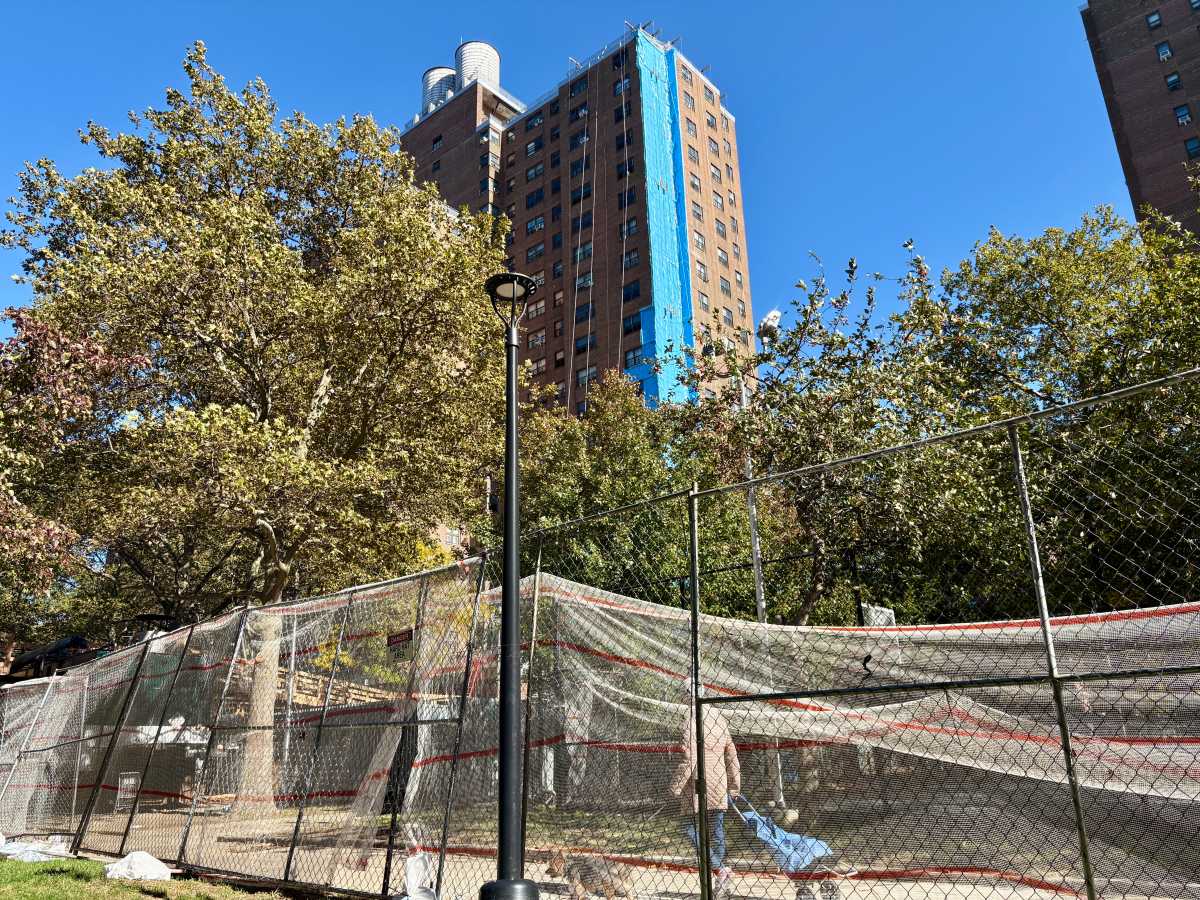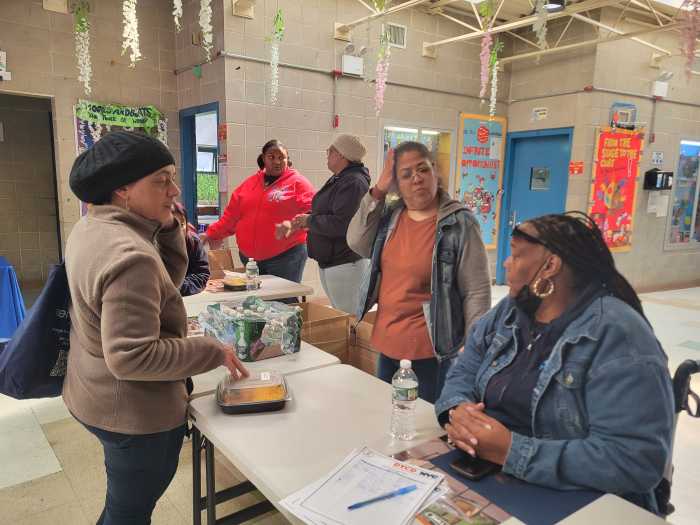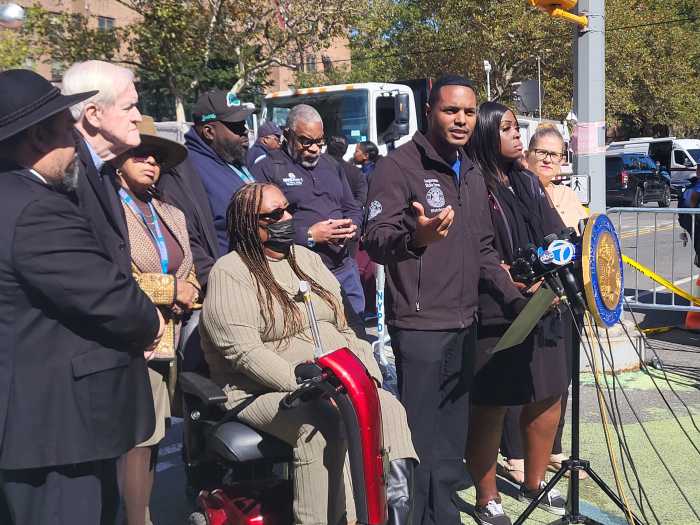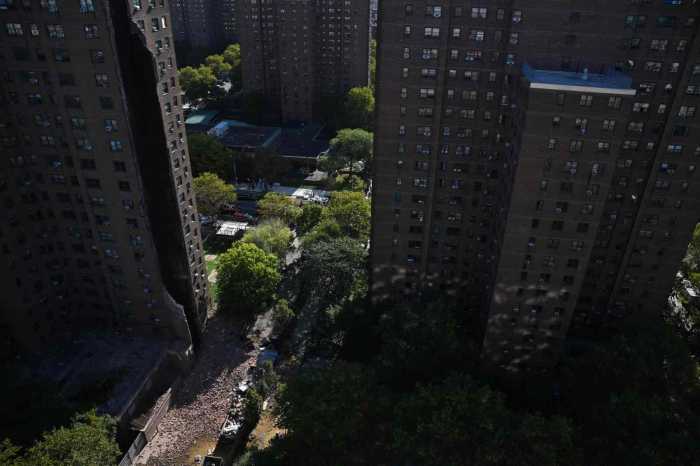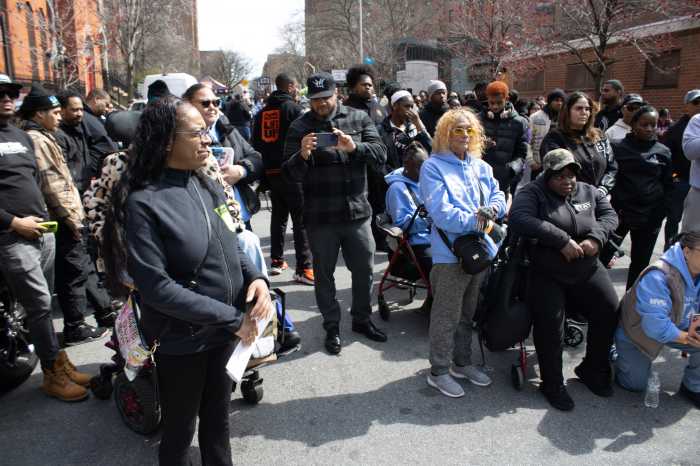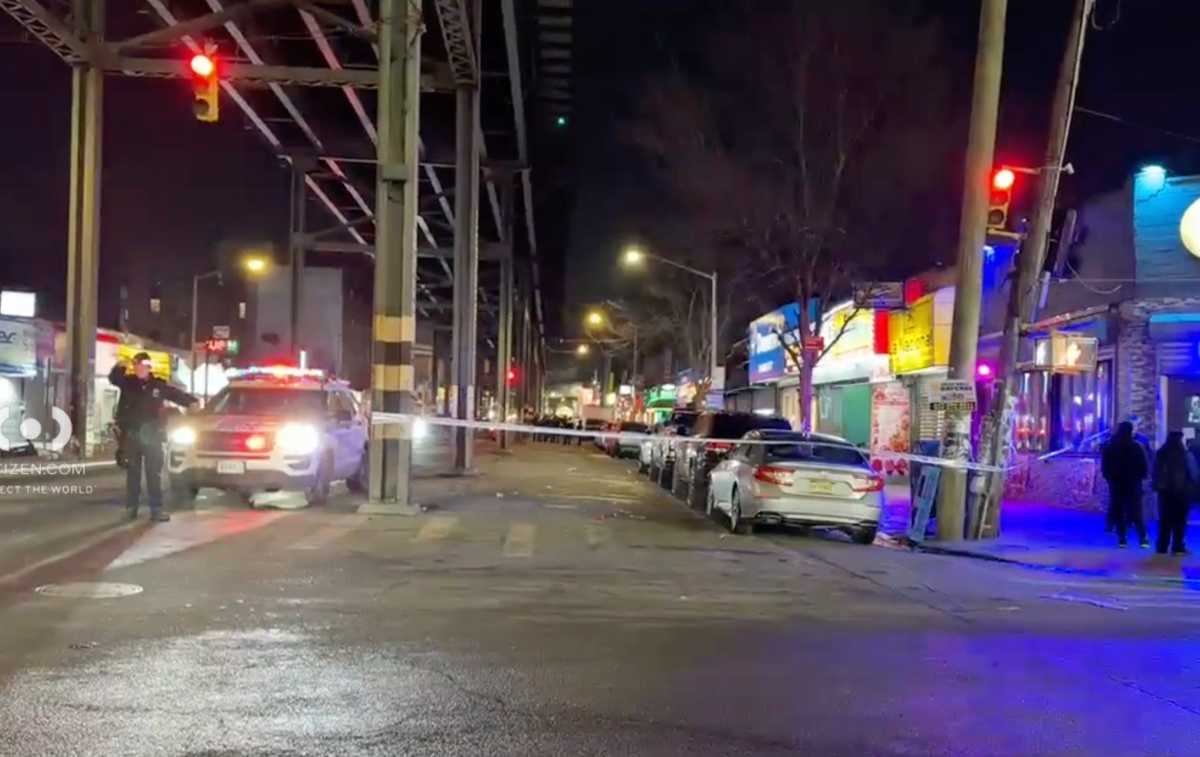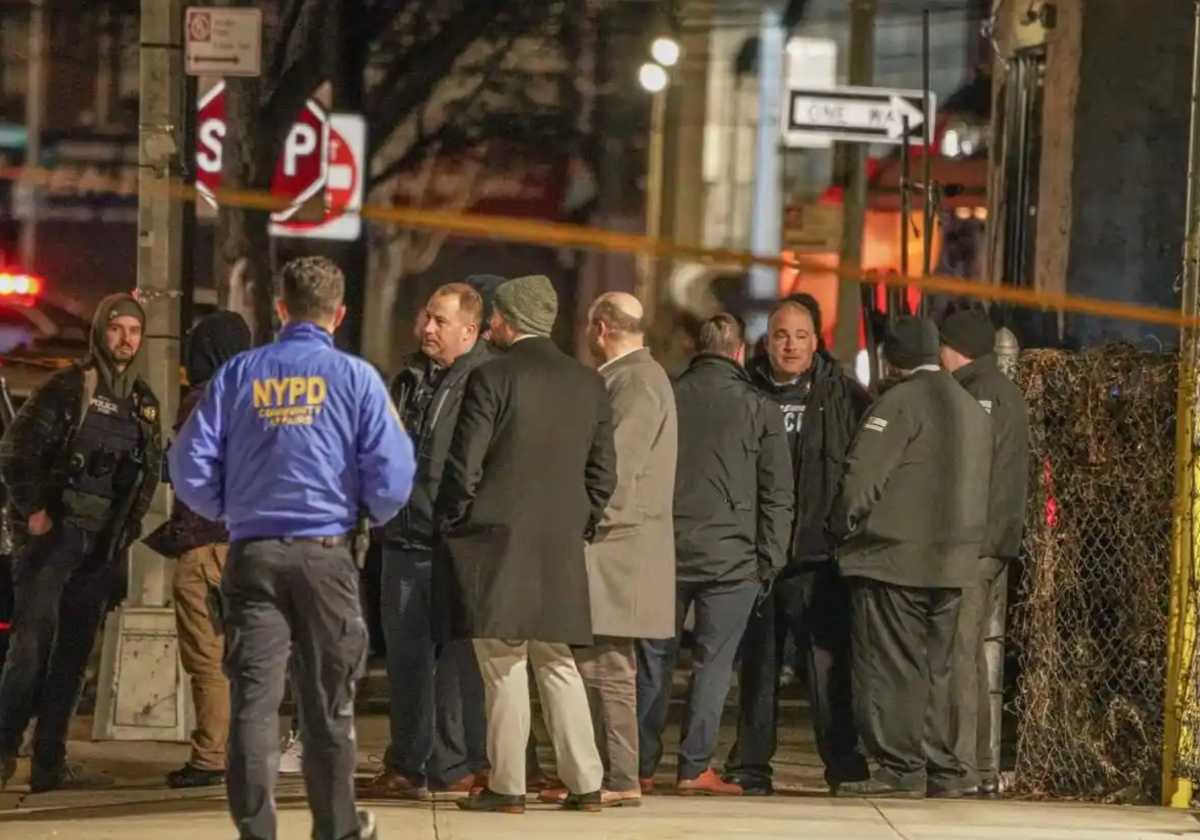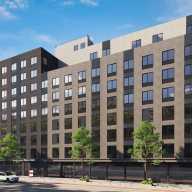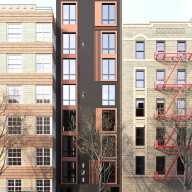U.S. Representative Ritchie Torres is calling on New York City Housing Authority (NYCHA) to prioritize converting the gas heated Mitchel Houses in Mott Haven to all-electric following the Oct. 1 partial collapse of one of its buildings after a boiler explosion.
In a letter addressed to Mayor Eric Adams and NYCHA CEO Lisa Bova-Hiatt, Torres called the conversion a matter of “public safety” noting that electric heating would be less likely to pose a fire hazard.
“Electrifying public housing means defusing the ticking time bomb of flammable fossil-fuel systems that threaten both life and property,” Torres said in the letter.
He said that it was only by “fortune — not foresight” that no one was injured or killed when the boiler explosion blew out an entire corner of a 20 story residential building, sending bricks raining down into the courtyard below.
The collapse displaced dozens of residents, although NYCHA has now cleared people to return to their units.
Even those residents who lived in buildings near the one that collapsed told the Bronx Times that they still can’t use their stoves and haven’t had hot water.
Isabel Santiago, who has lived in Mitchel Houses for 38 years in a building adjacent to the one that collapsed, said that she was given a hot plate and a slow cooker to use for cooking. But she said that the slow cooker is too heavy for her to lift on her own.
“ I had to carry that thing from the kitchen to the bathroom to empty out all the liquid that was in it,” Santiago said. “No more. I’m not using it.”
She said that even though she didn’t live in the building that collapsed, she was still shouldering the burden of an increased cost in food from not being able to cook from scratch for her grandchildren who she babysits.
“If I can’t cook for them, then I have to go out and get them something, and that’s not good,” Santiago said.
She told the Bronx Times that she worries the explosion, combined with persistent disruptions to the heat and hot water point to a bigger problem with the gas supply at Mitchel Houses.
“ There has to be [a problem],” Santiago said. ‘Because why is it gonna take so long for the boiler? What does the boiler have to do with our stoves?”
Santiago said that initially she didn’t have a preference for cooking with gas or electricity, but after watching the building collapse, she would feel safer if the building went all-electric.
“ I thought something like a bomb had hit, and when I went to look out the window I saw the chimney come down,” Santiago said. “And then I knew it was bad.”
The city is already making strides towards electrifying its buildings under the 2019 Local Law 97, which mandates that the city’s buildings reduce their greenhouse gas emissions beginning in 2024.
NYCHA buildings are not exempt from the law, but play under a different set of rules, according to a NYCHA report on the new emissions laws. Buildings within the public housing authority’s portfolio are exempt from the financial penalties that private buildings incur if they fail to comply with the new laws.
NYCHA’s emissions reductions are also measured across its entire portfolio of buildings, rather than by each building.
The housing authority is the largest landlord in the city, serving over 2,000 residential buildings, per the NYCHA report. Even if the agency were able to completely electrify 100 of its buildings every year, it would take decades to reach every building.
It’s a dire situation that the agency itself recognized.
“Given these facts, it is essential that NYCHA move aggressively to address this issue and resist the temptation to wait for some future ‘silver bullet’ technology that may or may not materialize,” NYCHA said in a section of the report entitled “Time is of the Essence.”
Time is exactly what Torres pushed for in the letter — he called on NYCHA and City Hall to include Mitchel Houses in the agency’s next round of electrification. The Bronx Times reached out to NYCHA about its method for determining which buildings have the most immediate priority for going all-electric, but has not yet received a response.
In the meantime, residents like Santiago and Sarah Robinson, who has lived in Mitchel Houses for eight years, have to make do with hot plates, heavy crock pots and intermittent heat and hot water outages.
“ We can’t even take a good bath,” Robinson said. “You just gotta wash yourself up and go about your business.”
Robinson told the Bronx Times that she believes Mitchel Houses need to be a priority and that she would feel safer if the buildings used electric energy instead of gas.
“ It might be a good thing — for one reason the gas exploded one time it might do it again,” Robinson said. “I think I’d rather go with the electric.”
Reach Sadie Brown at sbrown@schnepsmedia.com or (214) 994-6723. For more coverage, subscribe to our newsletter and follow us on Twitter, Facebook and Instagram!

